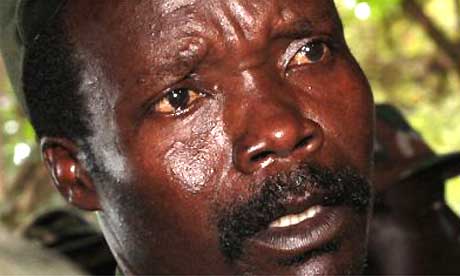 The Office of Housing and Residence Life is hosting a showing of the documentary film “KONY 2012” at 9 p.m. Monday, April 9, in Forum I in the Wright Administration Building.
The Office of Housing and Residence Life is hosting a showing of the documentary film “KONY 2012” at 9 p.m. Monday, April 9, in Forum I in the Wright Administration Building.
Invisible Children is a youth-based organization trying to put an end to a decades-long conflict in Central Africa where a rebel army has been attacking innocent civilians and abducting children.
There also will be a question and answer period with the Invisible Children Roadies and a Ugandan who has first-hand experience with the organization.
The event is free and open to the public. Donations will be accepted and there will be merchandise available for purchase. Refreshments will be served.




Brookings
Wednesday March 28, 2012
Oil Discoveries in Uganda: A Blessing or Curse?
Africa, Development, Developing Countries, Global Poverty, Economic Development
Ezra Suruma, Distinguished Visiting Fellow, Global Economy and Development, Africa Growth Initiative
The Brookings Institution
May 18, 2010 —
For the last few decades, Uganda has been a major player in the on-going conflicts in the African Great Lakes Region, including such countries as the Democratic Republic of Congo (DRC), Somalia and Sudan. Uganda also played a role in what turned out to be ugly ethnic conflicts in Rwanda and Burundi. Currently, Uganda has the largest peacekeeping force in Somalia while it continues its own battle to quash the Lords Resistance Army, which has now been relegated to the jungles of the DRC and the Central African Republic. Uganda is a poor country whose population is largely dependent on traditional agriculture and 30 percent of whom are still below the poverty line. Yet, Uganda has been active in persistent military struggles within the region.
The discovery of substantial oil reserves in Uganda, therefore, may not be an idle event in the life of the Great Lakes Region. The oil discoveries promise to dramatically increase the government revenue, a substantial blessing to the people of Uganda if the revenues are well invested in building the country’s dilapidated infrastructure, promoting agricultural transformation, and also by investing in human capital. Thus, the oil revenues can go a long way in the development of the country with substantial positive spillovers within the region.
But then there are concerns about Uganda’s military stance. If Uganda has been able to flex her muscle far and beyond the Great Lakes Region with her limited resources, are the oil revenues likely to ratchet such military involvement upward? Will President Museveni’s government focus on deploying the oil revenues that are set virtually to double Uganda’s GDP overnight in a manner that maximizes development outcomes?
An optimistic scenario is one whereby Uganda would focus on productive investments that lead to a dramatic transformation of its economy. Under the conducive business and investment climate, Uganda would become an important market to its neighbors—especially those members of the East African Community and Customs Union namely Kenya, Tanzania, Rwanda and Burundi. Such expansion of intra-Africa trade is critical for the continent’s development.
A less optimistic scenario, and one that is not unlikely, could be one that results in different groups chaotically scrambling for the oil revenues, causing discontent and consequently adding fuel to political upheaval along the traditional ethnic and religious fault lines. Enemies of Uganda could certainly exploit such upheaval. Such emerging rivalries could also trigger intense military response both in Uganda and beyond. As has happened in many other African countries, the natural resource revenues could end up creating conflicts, instability and underdevelopment. In short, there is a risk of the natural resource curse.
To avoid the resource curse, it is paramount that the democratization process in Uganda deepens and consolidates so that the 2011 elections are seen and believed to be free and fair. Just as the remarkable growth of Uganda’s economy has continued uninterrupted for over 15 years—thanks to persistently increasing political competition—Uganda and the entire region will also consolidate stability and growth when peaceful political change becomes the accepted culture. The absence of peaceful constitutional change, no matter how it is justified, creates too much temptation toward violent change when citizens become convinced that peaceful change is unattainable. This is what happened in Uganda in 1980 when the blatant rigging of elections erased the hope of democratic change and compelled the National Resistance Movement to take up arms against the illegitimate regime of Milton Obote. As we have seen, this would be the worst outcome for the whole region.
Oil revenues will strengthen national and regional stability only when real democratic competition forces those in government to account for every drop of it. Neither Uganda nor the African Great Lakes Region can afford oil without democracy. Non-democratic oil is too hot to handle. It should be labeled “hatari,†the Swahili word for “danger: do not touch.â€
Comments are closed.